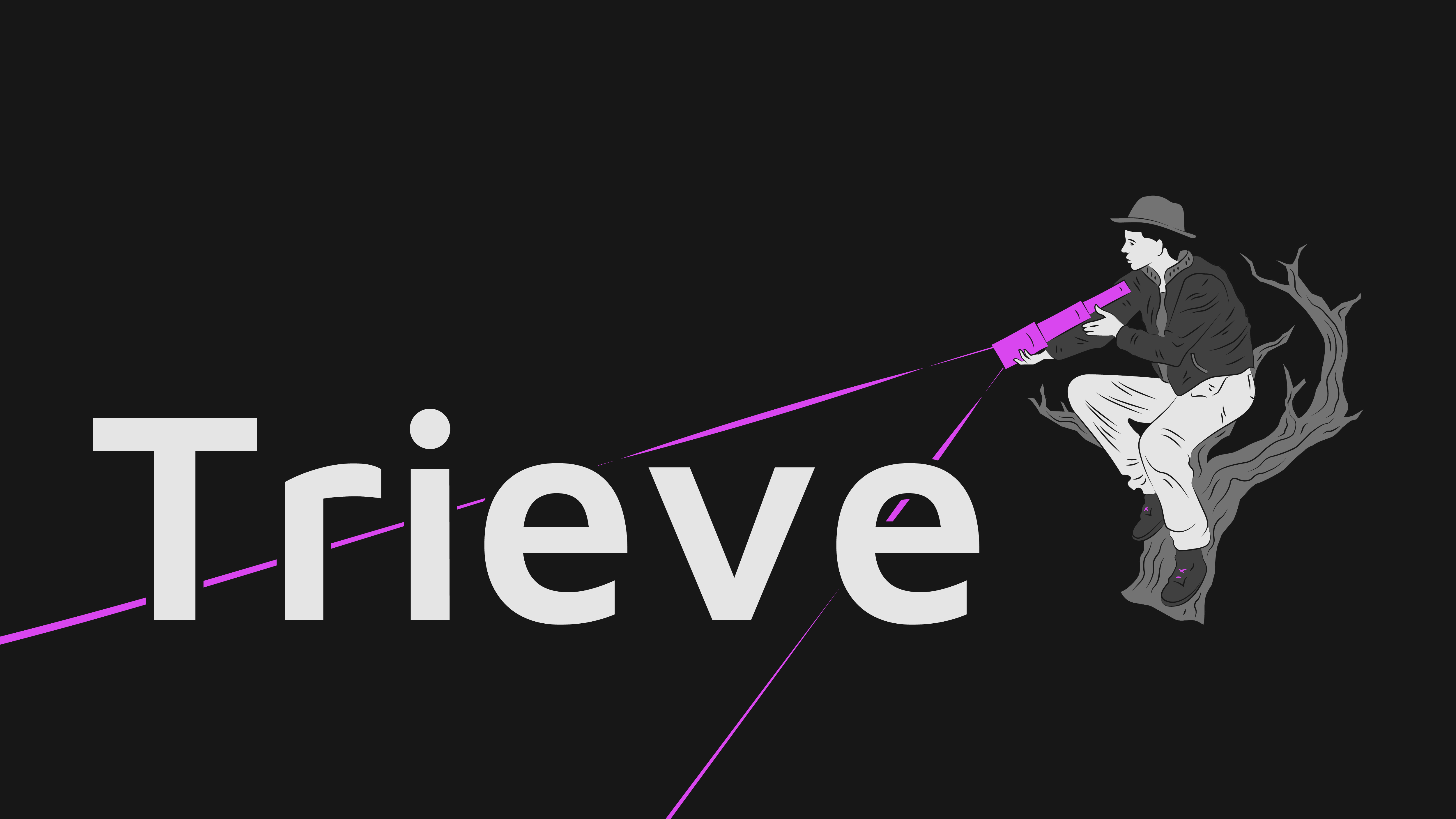Sign Up (1k chunks free) | Documentation | Meeting Link | +1 628-222-4090 | Community Matrix
- 🔒 Self-Hosting in your VPC or on-prem: Buy a license to host in your company's VPC on prem with our ready-to-go docker containers and terraform templates.
- 🧠 Semantic Dense Vector Search: Integrates with OpenAI or Jina embedding models and Qdrant to provide semantic vector search.
- 🔍 Typo Tolerant Full-Text/Neural Search: Every uploaded chunk is vector'ized with naver/efficient-splade-VI-BT-large-query for typo tolerant, quality neural sparse-vector search.
- 🖊️ Sub-Sentence Highlighting: Higlight the matching words or sentences within a chunk and bold them on search to enhance UX for your users. Shout out to the simsearch crate!
- 🌟 Recommendations: Find similar chunks (or files if using grouping) with the recommendation API. Very helpful if you have a platform where users favorite, bookmark, or upvote content.
- 🤖 Convenient RAG API Routes: We integrate with OpenRouter to provide you with access to any LLM you would like for RAG. Try our routes for fully-managed RAG with topic-based memory management or select your own context RAG.
- 💼 Bring Your Own Models: If you'd like, you can bring your own text-embedding, SPLADE, cross-encoder re-ranking, and/or large-language model (LLM) and plug it into our infrastructure.
- 🔄 Hybrid Search with cross-encoder re-ranking: For the best results, use hybrid search with BAAI/bge-reranker-large re-rank optimization.
- 📆 Recency Biasing: Easily bias search results for what was most recent to prevent staleness
- 🛠️ Tunable Popularity-Based Ranking (Merchandizing): Weight indexed documents by popularity, total sales, or any other arbitrary metric for tunable relevancy
- 🕳️ Filtering: Date-range, substring match, tag, numeric, and other filter types are supported.
- 🧐 Duplicate Detection: Check out our docs on collision-based dup detection to learn about how we handle duplicates. This is a setting you can turn on or off.
- 👥 Grouping: Mark multiple chunks as being part of the same file and search on the file-level such that the same top-level result never appears twice
Are we missing a feature that your use case would need? - call us at 628-222-4090, make a Github issue, or join the Matrix community and tell us! We are a small company who is still very hands-on and eager to build what you need; professional services are available.
Our current top 2 priorities for the next while are as follows. Subject to change as current or potential customers ask for things.
- Observability and metrics (likely something w/ Clickhouse)
- Benchmarking (going to aim for a 1M, 10M, and 100M vector benchmark)
- SDKs (can generate from OpenAPI spec, but would like to test a bit more)
- Find an issue in the issues tab that you would like to work on.
- Fork the repository and clone it to your local machine
- Create a new branch with a descriptive name: git checkout -b your-branch-name
- Solve the issue by adding or removing code on your forked branch.
- Test your changes locally to ensure that they do not break anything
- Commit your changes with a descriptive commit message: git commit -m "Add descriptive commit message here"
- Push your changes to your forked repository: git push origin your-branch-name
- Open a pull request to the main repository and describe your changes in the PR description
We have a full self-hosting guide available on our documentation page here.
sudo apt install curl \
gcc \
g++ \
make \
pkg-config \
python3 \
python3-pip \
libpq-dev \
libssl-dev \
openssl
You can install NVM using its install script.
curl -o- https://raw.githubusercontent.com/nvm-sh/nvm/v0.39.5/install.sh | bash
You should restart the terminal to update bash profile with NVM. Then, you can install NodeJS LTS release and Yarn.
nvm install --lts
npm install -g yarn
pip install -r ./server/server-python/requirements.txt
mkdir server/tmp
cargo install cargo-watch
cp .env.chat ./chat/.env
cp .env.search ./search/.env
cp .env.server ./server/.env
Here is a guide for acquiring that.
- Open the
./server/.envfile - Replace the value for
LLM_API_KEYto be your own OpenAI API key. - Replace the value for
OPENAI_API_KEYto be your own OpenAI API key.
cat .env.chat .env.search .env.server .env.docker-compose > .env
./convenience.sh -l
We know this is bad. Currently, We recommend managing this through tmux or VSCode terminal tabs.
cd server
cargo watch -x run
cd search
yarn
yarn dev
cd chat
yarn
yarn dev
You can download the latest version NodeJS from here. Open the downloaded file and follow the steps from the installer.
After completing the installation, open a powershell with administrator permissions.
npm install -g yarn
After installation, yarn might throw an error when used due to Window's execution policy. Change the execution policy to allow scripts to be executed by applications that are signed by a trusted publisher by putting this command in an admin powershell.
Set-ExecutionPolicy -ExecutionPolicy RemoteSigned
You can download the latest version of Rust from here. Follow the installer's directions and install the prerequisites.
After installation, open a new powershell window with administrator permissions.
cargo install cargo-watch
Follow the instructions to download Docker Desktop for Windows from here. You may need to follow the instructions to enable WSL 2.
Download PostgreSQL 13 from here. You should not use any other version of PostgreSQL due to there being an issue with diesel on other versions.
When installing, ensure that the PostgreSQL server is set to a port other than 5432 to prevent it from interfering with the docker container.
Add Postgres to PATH
[Environment]::SetEnvironmentVariable("PATH", $Env:PATH + ";C:\Program Files\PostgreSQL\13\lib;C:\Program Files\PostgreSQL\13\bin", [EnvironmentVariableTarget]::Machine)
cp .env.chat ./chat/.env
cp .env.search ./search/.env
cp .env.server ./server/.env
Here is a guide for acquiring that.
- Open the
./server/.envfile - Replace the value for
LLM_API_KEYto be your own OpenAI API key. - Replace the value for
OPENAI_API_KEYto be your own OpenAI API key.
Start the docker containers using the batch script.
Get-Content .env.chat, .env.search, .env.server, .env.docker-compose | Set-Content .env
./convenience.bat l
You need 3 different windows of powershell or use something like VSCode terminal tabs to manage it.
cd server
cargo watch -x run
cd search
yarn
yarn dev
cd chat
yarn
yarn dev
apt install libjpeg-dev libpng-dev libtiff-dev
curl https://imagemagick.org/archive/ImageMagick.tar.gz | tar xz
cd ImageMagick
./configure
make uninstall
make install
diesel::debug_query(&query).to_string();
Install Stripe CLI.
stripe loginstripe listen --forward-to localhost:8090/api/stripe/webhookstripe plans create --amount=1200 --currency=usd --interval=month --product=prod_PCHehsNBCcVN9i





